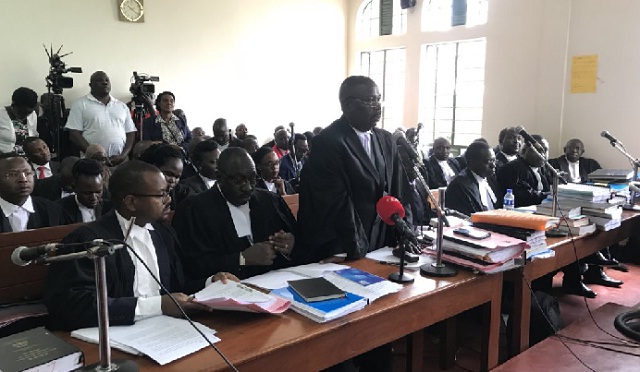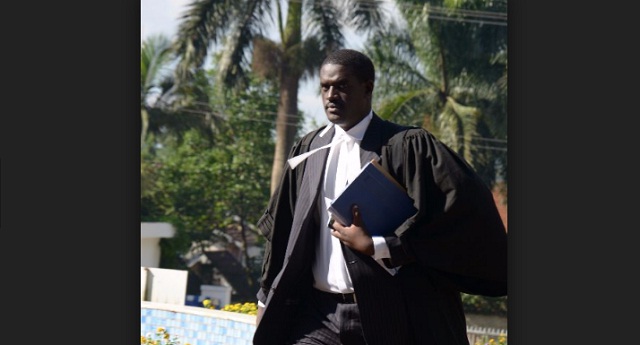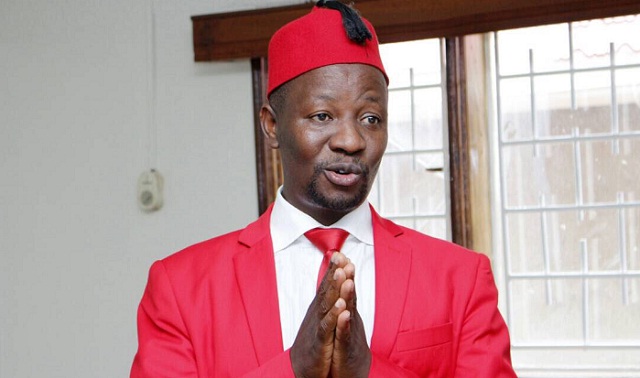The issue of age-limit case ruling
Deputy Chief Justice, Alfonse Owiny-Dollo and four other judges heard the case in Mbale until April 19 when hearing ended. Owiny-Dollo then announced that the judgment would be “on notice” meaning the date for the judgment was not been fixed. Apart from Owiny-Dollo, the other judges on the bench included; Remmy Kasule, Cheborion Barishaki, Elizabeth Musoke, and Kenneth Kakuru.
But even as the court proceedings went on, the ruling party machinery was already plotting. Party mobilisers are also planning to hit the ground again in a bid to mobilise support for the law.
Part of the reason is that insiders anticipate a big fight –again.
Last year’s amendment attracted intense protests.
President Museveni was even forced to deploy the military to eject from parliament legislators opposed to the removal of the age limit, which was seen as intended to launch his life presidency.
The deployment of the military was the climax of the anti-age limit campaign and appeared to mark a major turning point in Uganda’s politics.
On Sept.26, there was a proper fist-fight in parliament that saw especially opposition legislators kicking, pulling each others’ ties and jacket lapels, and hurling chairs at their colleagues in the ruling NRM party MPs. This forced Kadaga to postpone the discussions on the bill to the next day.
Similar scenes on Sept.21 had led the Deputy Speaker of Parliament to postpone tabling of the controversial Bill. On that day security forces; police and the army deployed heavily around parliament and surrounding environs.
They arrested several prominent opposition politicians in morning swoops on their homes.
The offices of some non-governmental organisations—Godber Tumushabe’s Great Lakes Institute For Strategic Studies (GLISS) and ActionAid—were also raided. Police accused these organisations of fueling the anti-age limit lifting tensions.
The U.S. embassy and the EU issued a statement saying they were “deeply concerned” about the arrests and actions targeting political activists. The two development partners also said the events tarnish the country’s image and appeared designed to stifle the Ugandan people’s right to free expression.
The siege of parliament by security forces was seen as reminiscent of the 1966 incident when then-Prime Minister Milton Obote deployed security forces around parliament and MPs passed the so-called “Pigeon-Hole Constitution” without reading it.
Although they are few in number, the opposition was emboldened by public support—75 percent of Ugandans said they were opposed to lifting the age limit according to a September Afrobarometer poll.
They had stalled parliamentary business on two occasions by starting fist fights in parliament. But on the third occasion, on Sept.27 Speaker Rebecca Kadaga suspend 24 of them and when they refused to leave the chambers.
Subsequently, operatives belonging to the Special Forces, an elite arm of the Ugandan military that guards the president and was until recently commanded by his son Maj. Gen. Muhoozi Kainerugaba, entered parliament and forcefully ejected the MPs out of the House.
The raid has been christened the rape of parliament the same way the 2005 siege of High Court by commandos known as the Black Mamba and subsequent arrest of opposition leader Kizza Besigye and other suspects was dubbed the rape of the High Court.
But once the parliament passed the law on December 20, President Museveni also accented to it a week later. Now the fate of this law partly rests on the decision of the Constitutional Court, which Owiny-Dollo said would be made public “soon”.
 The Independent Uganda: You get the Truth we Pay the Price
The Independent Uganda: You get the Truth we Pay the Price






Once critical of leaders who overstay in power, today he leads the club in the continent Africa showing his true greed for power, hypocrisy, double standards, political deception, manipulation and arrogance.
A new breed of African dictators who have lost the clear line between multiparty politics and monarchy. He talks of ideological bankruptcy in African politics yet he has failed to implement his own NRM party mission and vision in his 32 years in power including their own initial 10 point program.
What does he need the time for? Systematic Corruption?, nepotism?, tribalism? Including his failure to deliver political and social service leadership? are those not enough indicators of his failed leadership? We already know his legacy of failed ideological political experiments.
Abraham Lincoln once said that nearly all men can stand adversity, but if you want to test a man’s character, give him power.
After the euphoric declaration of 26th January 1986; I wonder whether any of the 1st family members are still proud of the level of dishonesty, deception, manipulation and power clinging, of the head of this family.
In other words, to associate with Mr. Museveni’s dishonesty is embarrassing and dehumanizing. Like the Egyptian Pharaoh; and to use his own son in-law, Rwabogo’s imagery, the man is shamelessly and by hook or crook, fossilizing himself in State House.